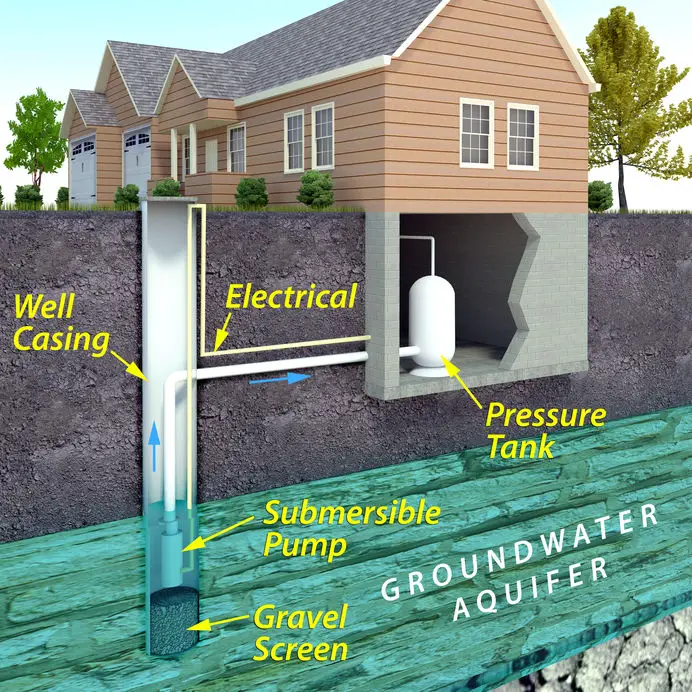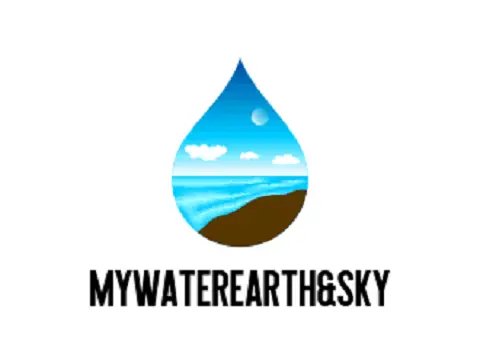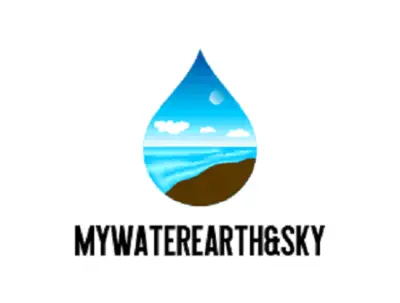It is estimated that more than 13 million households rely on private wells for drinking water in the United States (US Census American Housing Survey 2017). EPA does not regulate private wells nor does it provide criteria or standards for individual wells but using them correctly could save you money in the long run. What is the Cost of a Well compared to City Water?
City H2O
EPA tested & delivered-national avg.$72.93 per/mon.
Based on 400 gals/home
Subject to increase
Penalties for over-usage
Well H2O
Free H2O-No limit
Inspection $300-500 per/yr.
Testing avg. $50-500 per/yr.
Avg. energy cost for Pump-.10-.20 per/hp-per/hr.
Replacement pump & pressure tank avg. $538 to $1,851
Water problems Scarcity and rising temperatures have increased awareness worldwide with populations growing and the lack of water supply prices to deliver and treat drinking water increase the bonus of having a private well on your property may make the difference for buying a property but how much?
Well Water vs City Water Cost
By using your Well water for potable water supply you’ll save money in the long run as long as the home Well water is safe and not contaminated. You should be aware because the Safe
The Drinking Water Act does not protect private wells. EPA’s rules only apply to public drinking water systems
There is always a slight possibility of contamination with a well. However, if the well is inspected and properly maintained, the chances of this are greatly decreased.
Nationwide, the average cost of a home Well inspection is $300 to $500. The price depends on the inspector’s rates, the types of water tests they conduct to check your water quality, and whether they provide a septic inspection at the same time. A Well inspection is a process in which an inspector assesses the condition of a home water well and all of its Well water parts pump, casing, storage tank, vents, etc.
They’ll also look for problems like rust on the pressure tank, low-pressure levels, faulty gauges, strange noises, cloudy water in water Well pipes, and anything that could pose a health risk. They can also check the quality of the Well water. Before you buy a house with Well water you want to have this done along with the condition of the home.
Well Water Supply Pump-Hard Water Costs
Most Well water has water softeners that eliminate Hard Water in the Well. Hard water comes with a large percentage of minerals like calcium and magnesium in the solution. While not harmful to humans, the minerals are harmful to plumbing, fixtures, and appliances, as well as being high-maintenance on your skin, hair, and clothing. City water could have the same problem so you may need a Water Softener whether you have a home private Well or not.
- The National average for water softener plus installation: is $1,000-$2,000
- The price range for water softener plus installation: is $600-$2,000
- The Monthly maintenance and operation expenses: $10-$20
- Electrical cost for home Well water pump
Look at your Well water pump controller and Well pump and find out how many horsepowers (HP) your pump is. At current electrical rate schedules, each horsepower costs on average between $0.10 and $.20 per hour to run.
This means if you have a 5-horsepower well water pump and it needs to run 5 hours a day to meet your irrigation and household water needs you could be spending up to $5 per day or about $150 a month to power your good water pump! You can offset this average price of water well costs by conserving operating time.
Well Water vs Municipal Water
EPA recommends testing your water annually:
- The Well water test should include total coliform bacteria, nitrates, total dissolved solids, and pH levels. If you suspect other contaminants, test for these also. Chemical tests can be expensive. Limit them to possible problems specific to your situation. Again, local experts can tell you about possible impurities in your area. The Board of Health for your area can help you with most of it.
- Well water test after replacing or repairing any part of the Well system (piping, pump, or the well itself.)
- Also test if you notice a change in your water’s look, taste, or smell.
- After a Flood in the area
Having a lab test well water samples can cost a nominal fee at government or university labs, or $50-$500 or more for private labs, depending on the lab and the number and type of compounds tested. Well-water testing by a lab should include a written analysis of the results and clear recommendations. In many states and counties, the Board of Health can oversee and recommend Professional Labs in your area.
City Water Cost
(CWS) supplies water to the same population year-round. It serves at least 25 people at their primary residences or at least 15 residences that are primary residences (for example, municipalities, mobile home parks, and sub-divisions).
In the United States, 52,110 (33.5%) are community systems. Over 286 million Americans get their tap water from a community water system. This water is monitored and protected by the Environmental Protection Agency EPA.
According to the EPA, It is estimated that more than 13 million households rely on private wells for drinking water in the United States (US Census American Housing Survey 2017).
EPA does not regulate private wells nor does it provide recommended criteria or standards for individual wells. EPA offers information regarding the importance of testing private wells and guidance on technologies that may be used to treat or remove any contaminants.
This means that daily weekly and monthly testing that is normally done when you are hooked up to your city’s water supply won’t be done because it is considered a Private Source that you are responsible for.
The average water bill in the United States is $72.93 a month for a family of four using 100 gallons of water per day per person. After this amount, the Water Distributor charges penalties according to where you are in the country.
Because the water is metered, this number goes up or down depending on usage, with families that use 50% more water than average spending about $115.50 a month and families that use 50% less water than average spending about $36.90 a month. If you heavily water your grass, have a pool, or have more than four people living in your home, your monthly bill will likely be quite higher than the average.
Water costs around the country (USA) depend on 2 main factors:
- Personal consumption
- The cost of water in your area. The cost of the average water bill varies depending on the state, but also on zip code and region. For that reason, your water bill might not necessarily be the same after moving, even if your monthly usage doesn’t change. Your Water Provider sets the price and normally is the only game in town.
According to data collected by RENTCafé, the least expensive cost of water in any state is Florida, where the average cost of a water bill is $6. Wisconsin and Vermont follow, with average water costs at $18/per month. Alaska has the most expensive water costs of any state at $95 per month, followed by West Virginia at $72.
Generally, Water Permit costs which are paid by the Developer or Builder are based on the length of the water main, which means that the further you are from the water supply, the more expensive the permit will be. The smallest water mains, measuring 200 feet, may only cost $150 for the permit, but longer main permits can cost as much as $1,400 in some locations. These permits are based on new developments if your home is freshly built and hooked up to the community water/sewer supply lines. Otherwise, you pay your bill according to the meter’s usage.
Municipal Water Vs Private Well Water Quality
An obvious negative of owning a Well is the time and money to maintain it. It’s important to learn the proper maintenance and upkeep needed for the health and safety of owning a Well for potable water supply. There are responsibilities that you’ll need to take on if you want to use a Well for your family’s water supply. The risk of having problems depends on how good your well is how well it was built and located, and even more importantly how well you maintain it.
- Pump & Pressure Tank-On National average the replacement cost is around $538 to $1,851 depending on the type of pump, horsepower, brand, and well depth
- Water Softener(optional on City & Well water)
- Whole House Water Filtration(optional on City & Well water)
Each during the year, check visible parts of your system for problems such as:
- Smells & Taste
- like rotten egg smells-gasoline or fuel odors-salty, metallic, chlorine, or chemical tasting
- Visible Problems
- Stainings of the water like red or brown-scale scum, foam, turbidity, cloudy water that contains air bubbles
- Cracking or corrosion
– Always check the well cover or well cap to ensure it is intact. The top of the well should be at least one foot above the ground
– Check for settling and cracking of surface seals - Have the Well tested at least once a year for coliform bacteria, nitrates, and other contaminants
- Inspected for mechanical problems, cleanliness
- Keep accurate records in a safe place, including:
– Construction contract or report
– Maintenance records, such as disinfection or sediment removal
– Any use of chemicals in the well
– Water testing results - Once your well has reached its serviceable life (usually at least 20 years on average), have a licensed or certified water well driller and pump installer decommission the existing well and construct a new well. Get the Well Inspected first because it may last longer.
If you have an independent water source, well water is free. Initialization costs typically are around $5,000 ($15 to $30 per foot of depth), and maintenance typically costs around $300 to $500 annually. And if you buy a property with a previously installed well, you bypass the installation costs.
As long as the well is maintained and tested there are some big costs and benefits.
How Much Does It Cost to Switch From Well to City Water
First and foremost, you need to check with the city. The city and tapping fees to the water main line on the street are about $1,000, but the real costs arise when hiring a plumber to install the line from the house to the water meter at around $4,000.
The water meter and tapping to the main water line at the street will have to be done by the city’s water engineers; Sometimes, They let the customer finish the plumbing from the meter to the house or something that will need to be done by a licensed contractor. Every city is different, so make sure you check them. I have seen new permits from $3600 to $10,000.
Benefits of Well Water Water Supply

If you can use more water than the average user of Public water providers for micro-farming or greenhouses for small businesses a Well system can be an advantage for a property owner and even add value for the future price.
A good quality water Well that is well maintained can save money on the cost of the operation.
Water quality plays a vital role in deciding how much value a well adds to a property. The water can be softened and filtered for drinking when it comes into the house. The majority of well water may not be suitable for drinking and may be used for outside crop growing.
If a contaminant is found to exceed health standards in your sample, contact your public health department for specific steps to follow and have you’re well re-tested to confirm the contaminant’s presence and concentrations.
Some problems can be handled quickly. For example, high bacteria concentrations can sometimes be controlled by adding disinfection to a well, such as chlorine, ozone, ultra-violet light, and electronic radiation.
A bottle of standard Bleach will do. Learn to do the Disinfection Process yourself and save money.
A Well that feeds a sprinkler system can add value to your home if you choose an irrigation system that is professional and convenient to use.
In warmer climates and arid regions, a sprinkler system can increase foliage growth and decrease the likelihood of yellow grass caused by drought. A sprinkler system can help ensure that your home has maximum curb appeal.
Private Well Water Iron
There are pros and cons to having municipal water treatment guaranteed to residential ratepayers, from public water companies to homeowners. Tap water is safe, and drinking water can be treated again with a home filtration system made from carbon and reverse osmosis filters. Public water has its benefits.
Private wells contain iron and other metals that create hard water that can cause problems with shower faucets and affect the taste of the tap.
The biggest problem with private well water systems is hard water. Water supplies are not endless well systems. Drilling a new well construction, buying a pump, adding a water softener, and testing for water contaminants like lead and bacteria need to be done. Private Well costs can be higher than public water at the start and then get cheaper.
There is no water bill each quarter to pay, yea I like that too.
Using water from a Well can be a bit scary. Water filters will clean drinking water, but what about the hard Well water your family comes in contact with from showering and brushing their teeth, which can affect the skin and hair that they have to use every day? Stay here on MyWaterEarth&Sky…………………………………………………. Continue reading

References:
Moving.com –How Much Does the Average Water Bill Cost?
Center for Disease Control(CDC) Public & Private Water Systems
EPA–Drinking Water Requirements
Thumbtack- How much does a Well inspection cost?

